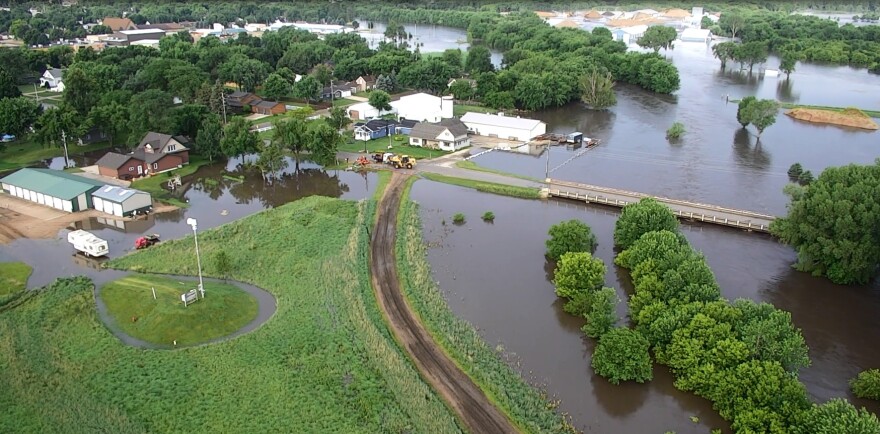Weeks after heavy rain damaged about 80 homes in a northwest Iowa town, officials are looking into installing permanent barriers to protect buildings from future flooding.
City of Rock Valley officials are considering installing concrete flood walls or building dirt mound structures called earthen berms along the Rock River to help the city withstand flooding.
City Administrator Tom Van Maanen says an engineering firm is assessing the costs of both options. The city will also need to work with property owners to acquire easements for the structures.
“That’s really the hard part, when the flood water goes down, having people remember what a disruption it became to their property and how working with the city we can create a permanent solution for them,” Van Maanen said.
Van Maanen says he is hopeful the city could build a barrier along the Rock River Corridor in the next three to five years.
In late June, the Rock River area received heavy rains, leading to what Van Maanen called “the second highest flooding on the Rock River” in recent years. The city saw a similar extreme flooding event in 2014.
"Maybe this is the new norm." -Rock Valley City Administrator Tom Van Maanen
“We were hoping when the 2014 flood happened, and being that it was so much higher than any previously recorded number, we were hoping it was kind of a once in a lifetime event,” he said.
“As we quickly learned four years later, maybe this is the new norm.”
Van Maanen said during that flooding event, the city laid out sandbags to protect the area and built barriers that cover about 15 percent of where they would like to see permanent berms installed in the future.
While the city was dealing with flooding in late June, 32 rail cars derailed nearby, spilling about 230,000 gallons of crude oil into the Rock River.
The city shut off its drinking water wells and used an interconnection with a rural water system while officials conducted testing for traces of crude oil. About a week later, the city’s water system was up and running again, Van Maanen said.
The city continues to test its water once a month to ensure no petroleum or any other products associated with crude oil have entered the well system.



